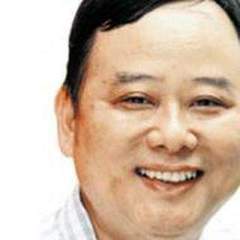How Xi Jinping consolidated power over the past decade
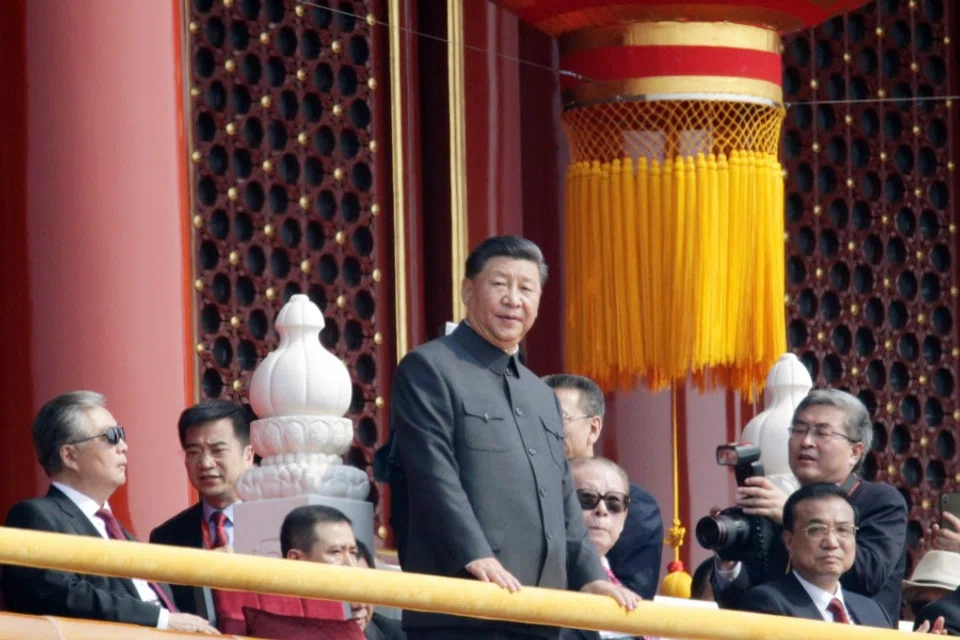
Between the 18th and 19th Party Congresses, the Communist Party of China (CPC) made major changes to its leadership structure and policymaking system including rebuilding its core, making "Xi Jinping Thought on Socialism with Chinese Characteristics for a New Era" its guiding ideology, and amending its constitution.
This marked the end of the Hu Jintao era of "nine dragons controlling water" (九龙治水) - referring to power being held by a few key persons - and the CPC leadership's successful transition to the Xi era of "one position as the highest authority" (定于一尊).
When the top leader becomes weak
The seven-day CPC's 20th Party Congress will commence on 16 October. On the last day of the session, the 20th CPC Central Committee will be selected, which will in turn select the new Politburo and its standing committee the following day, along with the new leadership, including the general secretary and chair of the Central Military Commission (CMC).
Evidently, the 20th Party Congress will be different from the 18th Party Congress ten years ago and the 16th Party Congress 20 years ago which saw changes in the top leader. CPC General Secretary Xi Jinping will undoubtedly continue as top leader even after serving two terms given the changes in the CPC leadership system over the past decade.
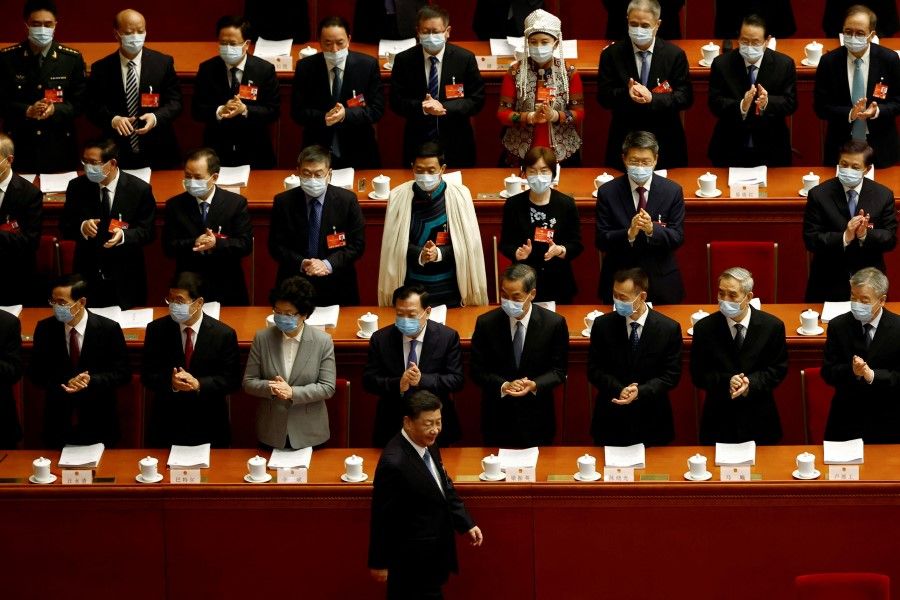
In other words, over the past decade, the CPC leadership has rebuilt its core and laid out the "Two Establishes" (两个确立) - uniting around Xi Jinping as the core of the party, and guided by Xi Jinping Thought. This has set the political and ideological foundations for Xi to go beyond two terms as the top leader.
From then on [1981], the CPC's top leaders Deng and Jiang Zemin were no longer referred to as "leader", but "the core".
The CPC was established in 1921 and it won the right to govern after 22 years of war. Against the backdrop of violence, the CPC built a system with a fixed leader and centralised and efficient power in the late 1930s, which helped defeat its opponents and push China's socialist reforms and industrialisation. However, such concentration of power also led to the party's idolisation of Mao Zedong, resulting in a decade of internal chaos that is the Cultural Revolution.
In the late 1970s, Deng Xiaoping and other CPC leaders dropped Mao's "class struggle", starting a new era of reform and opening up. In 1981, the sixth plenary session of the CPC's 11th Central Committee passed resolutions to reflect on the lessons of the Cultural Revolution, stressing a healthy democracy and rule of law, and opposing the idolisation of any individual. From then on, the CPC's top leaders Deng and Jiang Zemin were no longer referred to as "leader", but "the core".
However, Hu, who was not designated as a "core" leader, faced increasingly severe challenges, such as insufficient central authority and rampant corruption...
After the 16th Party Congress in 2022, Jiang Zemin as "the core" of the CPC Central Committee was succeeded by Hu Jintao as its "general secretary", henceforth removing the terms "leader" and "core" from the political stage.
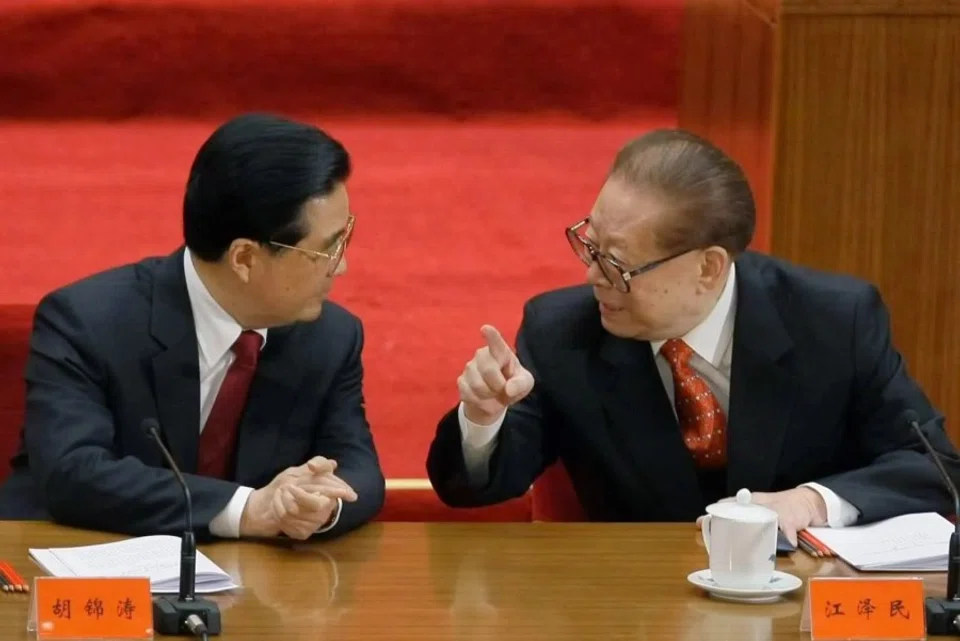
However, Hu, who was not designated as a "core" leader, faced increasingly severe challenges, such as insufficient central authority and rampant corruption, which evolved into a mess of "government commands not going beyond Zhongnanhai" (政令不出中南海, Zhongnanhai refers to the CPC's headquarters), and power being held by a few key persons in the later stages of his leadership.
China's political culture and system have always tended towards power and order, and the lack of authority in the upper echelons led to serious problems, including factionalism and corruption. The CPC was at enormous risk of losing the party and the country.
Xi seized on the people's abhorrence of corruption, and with unprecedented boldness, he removed a large number of powerful "tigers"...
Towards rebuilding central authority
After the 18th Party Congress in 2012, Xi became CPC general secretary, CMC chair and president of China, and rebuilt the central authority by taking major steps to rectify the situation and instill discipline.
First, he had to reinforce his personal authority. Xi seized on the people's abhorrence of corruption, and with unprecedented boldness, he removed a large number of powerful "tigers", including Politburo standing committee member Zhou Yongkang, Politburo members and vice-chairs of the CMC Xu Caihou and Guo Boxiong, Politburo member Sun Zhengcai, and CPC General Office head Ling Jihua. This struck fear among the corrupt as well as his opponents within the party, and won him widespread praise among the people - Xi's personal prestige rapidly rose.
The CPC started to rebuild the power structure where "the party leads everything", organising central leading groups with Xi as head, including the former Central Leading Group for Comprehensively Deepening Reforms, Central Leading Group for Financial and Economic Affairs, and Central Foreign Affairs Leading (Small) Group.
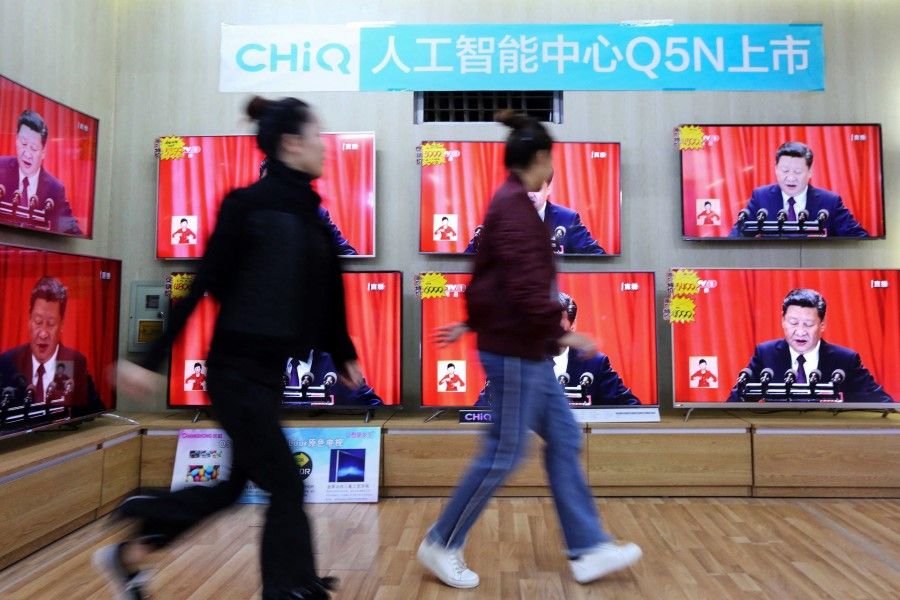
To a large extent, these leading groups changed the power structure at the top, strengthening Xi's leadership in economy, politics, culture, society and ecology. And following the 19th Party Congress in 2017, some leading groups were elevated to the rank of central commission, which are still led by Xi. (N.B. The above-mentioned leading groups have been renamed Central Comprehensively Deepening Reforms Commission, Central Financial and Economic Affairs Commission and Central Foreign Affairs Commission respectively.)
In late 2015, Xi began to reform the Chinese military - the largest, broadest and deepest of such exercises for the PLA since the CPC established the People's Republic of China in 1949.
In January 2015, Xi led a meeting of the Politburo Standing Committee, which heard work reports from agencies and teams, including the Standing Committee of the National People's Congress (NPC), State Council, Chinese People's Political Consultative Conference (CPPCC) and CPC Secretariat.
Notably, the four Politburo Standing Committee members - NPC Standing Committee chair Li Zhanshu, Chinese Premier Li Keqiang, CPPCC chair Wang Yang, and Wang Huning (in charge of party affairs) - presented work reports to Xi and the Politburo Standing Committee. Subsequently, the reporting, which the media deemed as an important arrangement in maintaining central, unified leadership in the party, became a regular occurrence at the start of each year.
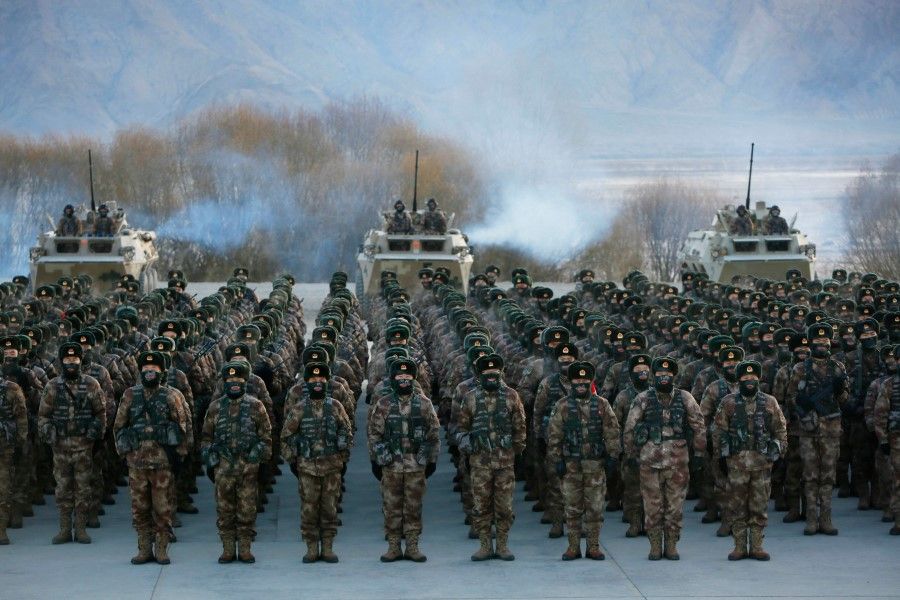
In late 2015, Xi began to reform the Chinese military - the largest, broadest and deepest of such exercises for the PLA since the CPC established the People's Republic of China in 1949. The reform removed the four main agencies of the PLA and installed 15 operational departments under the CMC; the seven troop regions became the five command regions, and a new system was set up where the troops are put in charge of their own governance and development, command regions in charge of combat, with the CMC overlooking the whole. Specialised army leadership agencies were set up - the army's Second Artillery Corps became the PLA Rocket Force, and the Strategic Support Force and joint logistics support force (联勤保障部队) were established.
Evidently, Xi's power not only surpasses that of his predecessors Jiang and Hu, but is even comparable to that of Deng, the chief architect of China's reform and opening up, making Xi another political powerhouse of the CPC since Deng's era.
Establishing Xi era with one position as the highest authority
After a few years of radical transformation of its command framework, structure and hierarchy, and military policy system, the Chinese military significantly boosted its overall strength. The military reforms showed Xi's strategic vision and dynamism in building a modern army, and his extraordinary control of the military.
Evidently, Xi's power not only surpasses that of his predecessors Jiang and Hu, but is even comparable to that of Deng, the chief architect of China's reform and opening up, making Xi another political powerhouse of the CPC since Deng's era. Hence, the conditions have become ripe to restore the "core" leader designation.
In January 2016, the Politburo meeting called on the party to strengthen the "Four Consciousness" - consciousness of the ideology, the whole, the core, and the line. This marked the reappearance of the word "core" in China's political context in over ten years.
In October of that year, the sixth plenary session of the 18th Central Committee of the CPC officially put forth the call to "closely unite around the CPC Central Committee with Comrade Xi Jinping as the core". Indeed, Xi's "core" leadership position has been rebuilt after four years of efforts.
Politburo members and other important leaders were mandated to make annual written presentations to Xi and the Central Committee.
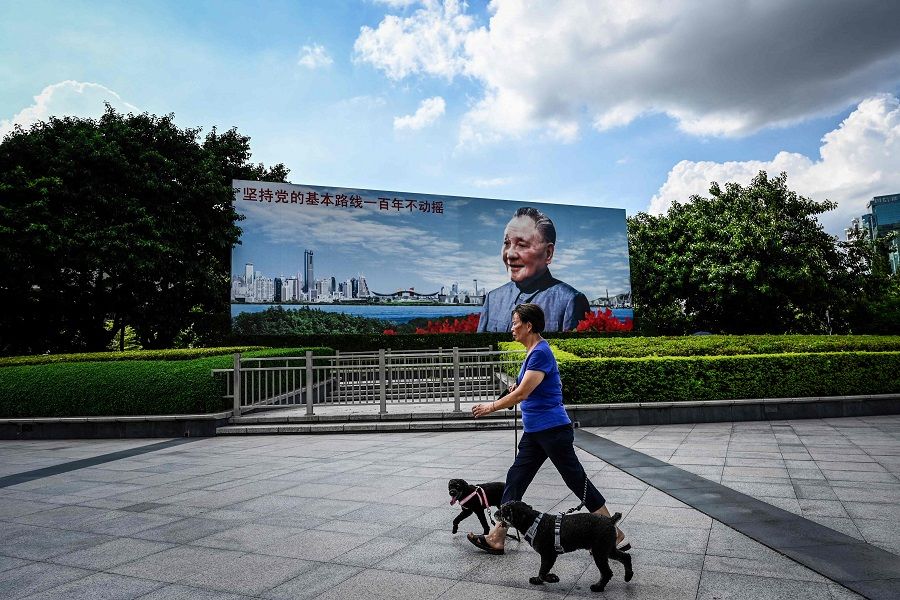
In October 2017, the CPC's 19th Party Congress formally created the "Xi Jinping Thought on Socialism with Chinese Characteristics for a New Era", which forms the CPC's guiding ideologies along with Mao Zedong Thought and Deng Xiaoping Theory. In the same month, Politburo members and other important leaders were mandated to make annual written presentations to Xi and the Central Committee. State media reported that Xi carefully reviews the reports and puts forward important requirements every year, which is tantamount to stipulating at the institutional and practical levels that all Politburo members are not only accountable to the Central Committee but also to the top leader, who judges whether the Politburo members are competent and responsible.
... the amended constitution also enshrined the Xi Jinping Thought, making Xi the third leader after Mao and Deng to have his name written into the constitution.
In March 2018, the NPC passed a constitutional amendment that abolishes term limits on the president, clearing the legal hurdle for Xi to remain in office for longer than two terms. At the same time, the amended constitution also enshrined the Xi Jinping Thought, making Xi the third leader after Mao and Deng to have his name written into the constitution.
In October 2018, the Central Commission for Discipline Inspection amended the CPC's disciplinary regulations (《中国共产党纪律处分条例》), urging party organisations at all levels and party members and cadres to consciously maintain a consistent political position, direction, principle and path with Xi as the core of the Central Committee through tightened political discipline and rules, and to resolutely uphold the authority of the Central Committee and its centralised, unified leadership.
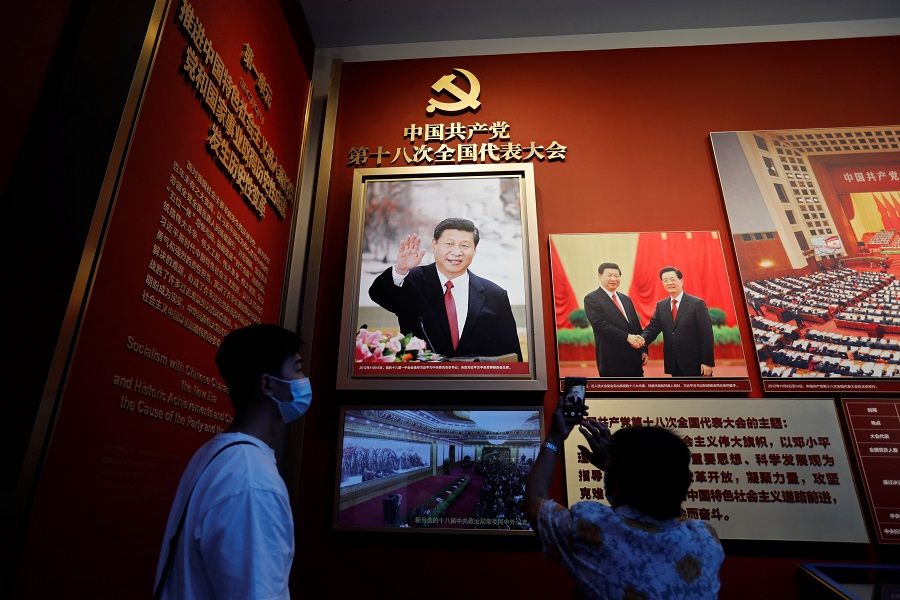
From the 18th to the 19th Party Congress, the CPC accomplished major political tasks of rebuilding its core, making Xi Jinping Thought its guiding ideology, and amending the constitution. This shows that the CPC's top-level power structure and policymaking system have significantly changed, and Hu's era of "nine dragons controlling water" has completely ended. The CPC's leadership system has successfully transitioned into the Xi era with one position as the highest authority.
Systematically enshrining Xi's achievements in history
Although Xi is set to stay in office after the 20th Party Congress, consolidating and strengthening his core position and justifying the necessity and significance of his third term still requires support from a more comprehensive and systematic theory.
The CPC commemorated the 100th anniversary of its founding in 2021. Apart from various celebratory events, the Resolution of the Central Committee of the Communist Party of China on the Major Achievements and Historical Experience of the Party over the Past Century was also adopted at the sixth plenary session of the 19th Central Committee of the CPC in November last year. This is the CPC's third historical resolution under the name of the Central Committee. The previous two historical resolutions established Mao's and Deng's leadership and core status in the party respectively.
The third historical resolution praised the CPC's achievements and summarised its historical experiences in the past century, with a focus on the "Two Establishes" (两个确立). The five generations of the CPC's leaders - Mao Zedong, Deng Xiaoping, Jiang Zemin, Hu Jintao and Xi Jinping - were mentioned in the resolution, but to varying degrees. Mao was mentioned 18 times, Deng was mentioned six times, Jiang and Hu were each mentioned once, while Xi was mentioned as many as 22 times.
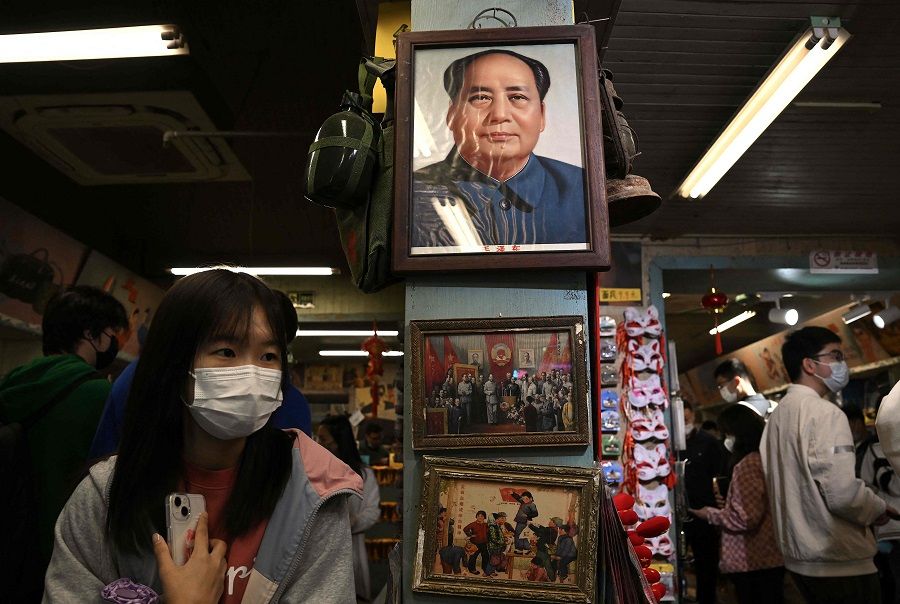
At the same time, the resolution also called Mao Zedong Thought, Deng Xiaoping Theory, and Xi Jinping Thought an "advancement" and a "breakthrough" in adapting Marxism to the Chinese context. However, Jiang Zemin's "Three Represents" and Hu Jintao's "Scientific Outlook on Development" were left out.
The resolution also discussed at length the achievements and experience of the CPC in the fields of politics, economy, culture, society, military, diplomacy and environmental conservation since Xi became CPC general secretary in 2012.
It described that the "Central Committee with Comrade Xi Jinping at its core has demonstrated great historical initiative, tremendous political courage, and a powerful sense of mission", and "has introduced a raft of major principles and policies, launched a host of major initiatives, pushed ahead with many major tasks, and overcome many major risks and challenges".
It has also "addressed many tough problems that were long on the agenda but never resolved, and accomplished many great things that others had failed to achieve". With this, it has prompted "historic achievements and historic shifts in the cause of the Party and the country".
The "Two Establishes" was praised for its great practical significance and profound historical significance in promoting the unity of the whole party...
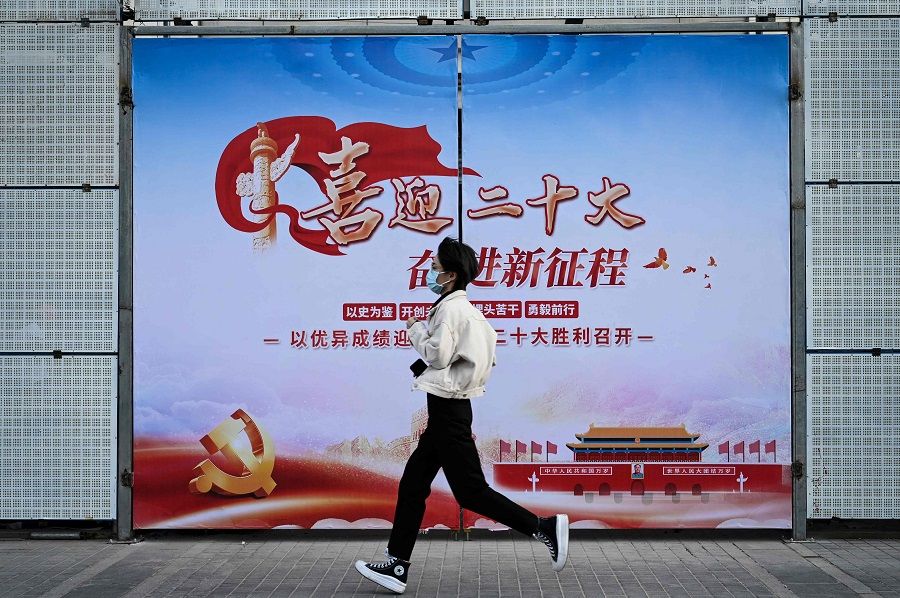
The resolution also emphasised that the party has "established Comrade Xi Jinping's core position on the Party Central Committee and in the Party as a whole", and defined the guiding role of Xi Jinping Thought, which "reflects the common will of the Party, the armed forces, and Chinese people of all ethnic groups, and is of decisive significance for advancing the cause of the Party and the country in the new era and for driving forward the historic process of national rejuvenation".
Following the sixth plenary session of the CPC's 19th Central Committee, officials continued to vigorously promote the "decisive significance" of the "Two Establishes", asserting that it is not only the greatest achievement of the third historical resolution but also the most important political achievement since the CPC's 18th Party Congress.
The "Two Establishes" was praised for its great practical significance and profound historical significance in promoting the unity of the whole party, increasing confidence, strengthening morale and seizing a new victory of socialism with Chinese characteristics in the new era.
Indeed, the CPC's 20th Party Congress is expected to further recapitulate and consolidate the experience of Xi Jinping's governance over the past decade, and enrich the theoretical system of the Xi Jinping Thought. The "Two Establishes" will be used to provide ideological guidance and political guarantee for the CPC to attain its goals for the next few decades, that is, to basically achieve socialist modernisation by 2035 and to make China a great modern socialist country by the middle of the 21st century.
This signifies that the "Two Establishes" will undoubtedly play a long-term role, and the leadership core of the CPC will be firm and secure at least for the next decade.
For Lianhe Zaobao's special reports on the 20th Party Congress, click here.
Related: Xi Jinping's position as 'the people's leader' firm ahead of 20th Party Congress | [Future of China] Xi Jinping and the world: Retrospect and prospect | CCP removes political factions and corrupt officials ahead of 20th Party Congress | [Party and the man] Factions and fence-sitters in Xi Jinping's China | The PLA's political role: The party still, and must always control the gun | Taiwan scholars: Greater centralisation of power expected after the 20th Party Congress | The most outstanding of CCP leaders?
